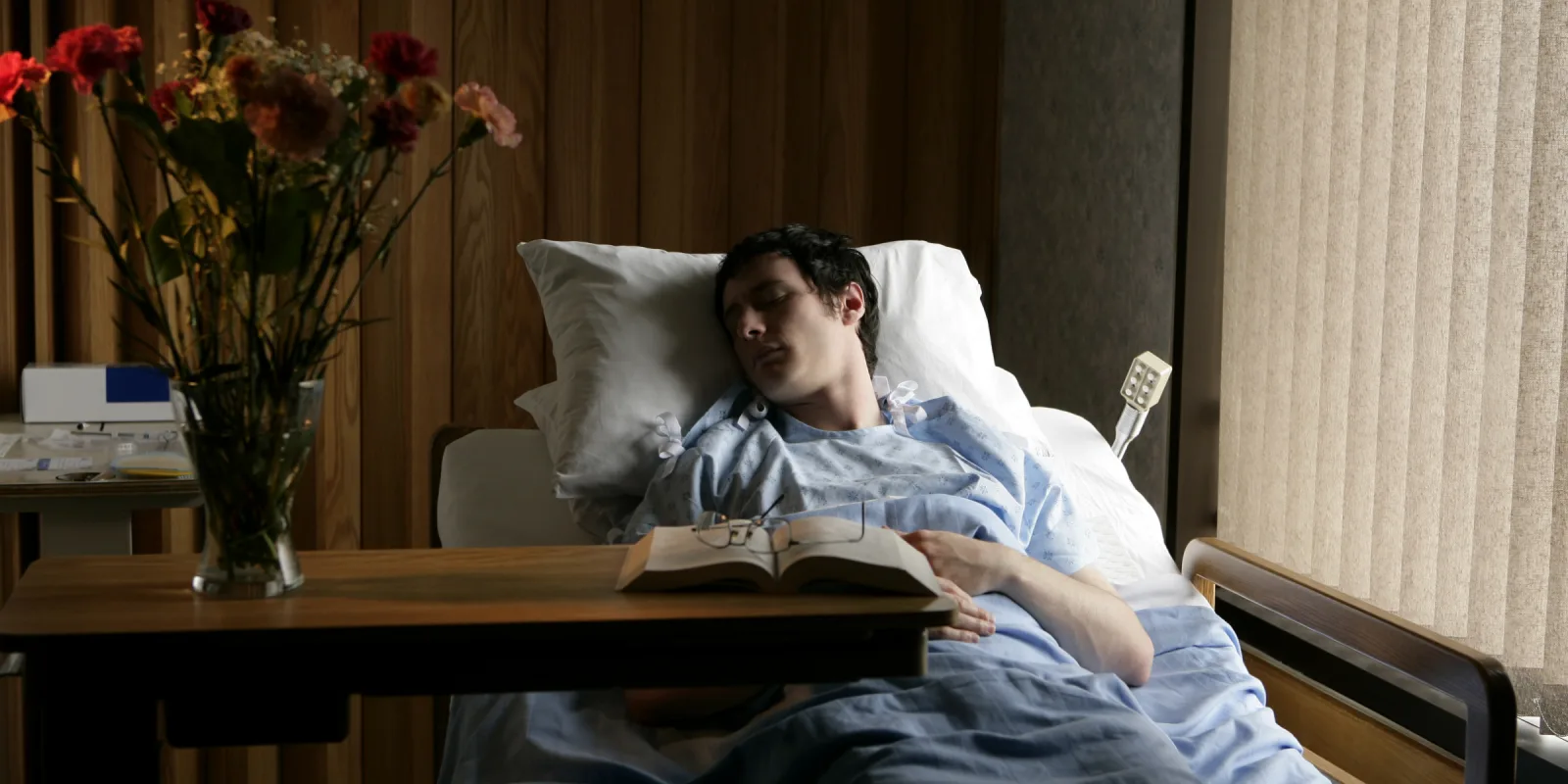Chemotherapy is a lot like the world’s dumbest game, “chicken.” Chicken, for those of you who don’t know, involves two people driving fast towards an obstacle, and the winner is the one who pumps their brakes last. If you crash, die, or act like a chicken and brake first, you lose.
The old-fashioned chemo is more or less the same. You almost kill someone to kill the cancer cells. Fast-growing, always renewing cells like cancer are the most vulnerable and hopefully get the biggest hit. Unfortunately, cells in your gut or hair need to be replaced continually and take a hit, too. That’s why you go bald and shit and puke like crazy. Your bone marrow is also constantly making more red blood cells to carry oxygen, white cells to fight infection, and platelets to clot. Those all drop during chemo, so people need transfusions of the red cells and platelets. You can’t transfuse the infection-fighting cells because they are specific to you and someone else’s white cells will attack anything foreign, including you. This is why cancer patients can get weird or severe infections from things that don’t affect healthy people at all. The balance is even harder to achieve when you have leukemia or lymphoma, which are cancers of the bone marrow itself.
There is a condition in which your bone marrow dies — from chemo, a few medicines, infections, or just plain bad luck. You are reliant on transfusions of red cells and platelets and constantly at risk for infections that could kill you. It is called “aplastic (like rigid, dead) anemia.” One sweet lady I’ll call “Violet” came to our cancer hospital for transfusions two to three times per week for years. She refused a bone marrow transplant because she was hoping for a cure. Inevitably, she got an infection and had to stay in the hospital. She had a minor fall while there, and with her low platelets, this led to a bleed in her brain. She didn’t make it.
I first met “Gabriel” after he was admitted late at night. I am required to check on all direct admits to write a note and place orders if they haven’t already been done recently by the doctor. Fortunately, Gabriel's doctor was nice, so all I had to do was stop in to make sure he was OK and maybe add a few minor orders for stuff like a sleeping pill. Gabriel also had aplastic anemia, but unlike Violet, he was waiting for a bone marrow transplant to fix it. He had survived some kind of leukemia or lymphoma years before, but his bone marrow hadn't. When I first walked in to say hi, I noticed he was reading a book about the great influenza epidemic of 1918. This was the last big pandemic, and the book got my attention. I am a big fan of reading, more than a little obsessed with the Black Death, and approved of Gabriel's impulse to look beyond the current pandemic to get lessons from history (I do the same kind of thing). We started talking and before I knew it, I had pulled up a chair to sit a while. Before long, I noticed Gabriel had brought in a dozen or so books and had turned his windowsill into a bookshelf.
Besides that fun stuff, I also talked him through the process of the bone marrow transplant and explained why it was so good that he was doing it while he still could. I mentally planned to tell him about Violet after he made it out on the other side (but not before; I didn’t want to scare him).
Gabriel got his transplant, but then things started to get weird. Shortly after, he started having strange sensations in his head and hearing things. We thought it might just be a side effect of one of the many meds he was on to keep the new bone marrow from attacking him. Whenever I saw him after that, he was kinda sleepy and out of it.
Then I came in to work one day and went to the ICU first to make sure there were no hot messes. There was. It was Gabriel. He had bled into his brain from the still low platelets. During the brain surgery they found a basically incurable fungal infection — a rare, horrible one that can only be treated by cutting out any affected parts. It often hits the sinuses and the few people who survive it need to have half of their face cut off. The infection may have been the cause of the bleeding in his brain. Among other things, the surgeon mentioned in his note that he had had to take out necrotic brain tissue.
Gabriel's wife and brother-in-law were there with him. He looked terrible, on a ventilator with a bulky bandage on his head. I said hello to his family and told them how I had connected during with Gabriel during his stay. We talked a little about how horrible this was. He had told them about me, so they knew we had already bonded. I didn’t want to get too deep into the badness in that encounter, but I told them I was going to be there all night and would be available if they had any questions.
I got the call at about 2 a.m.
This time they really wanted to know it all, so I obliged as gently as I could. I told them that this was not survivable and even if Gabriel did survive, he wouldn’t be the same. They appreciated the honesty and didn’t want him to suffer anymore. Before all this happened, Gabriel had communicated that he did not want to be kept alive in such a state. His wife said something that really stuck with me: “He had such a beautiful brain.” They asked for him to be taken off the ventilator and we did as they asked. We gave him some medicine to make sure he didn’t suffer in those last few minutes and they spent the time at his side as he passed. It was so calm that they didn’t even realize when it happened. Afterwards, I spent a lot of time talking to his family and letting them process the first part of their grief. I made sure to tell them it was going to be very hard for a long time, but eventually things would get better.
I am glad that I got to be a part of Gabriel's life and death. Despite my having no previous experience with his family, the time I put in to get to know Gabriel allowed his family to trust me. It also allowed me to help them through an awful time. The experience reinforced my long-standing belief that simply having and expressing curiosity about a patient’s life outside of their illness can make something magical happen.The biggest joys I experience in medicine, even when the outcome is bad, tend to be less about figuring out some obscure case and the right treatment for it and more about what can happen when you show interest in a patient as a person, not as an illness.
Have you had patient experiences that changed the way you look at medicine? Share them in the comments.
All names and identifying information have been modified to protect patient privacy.







